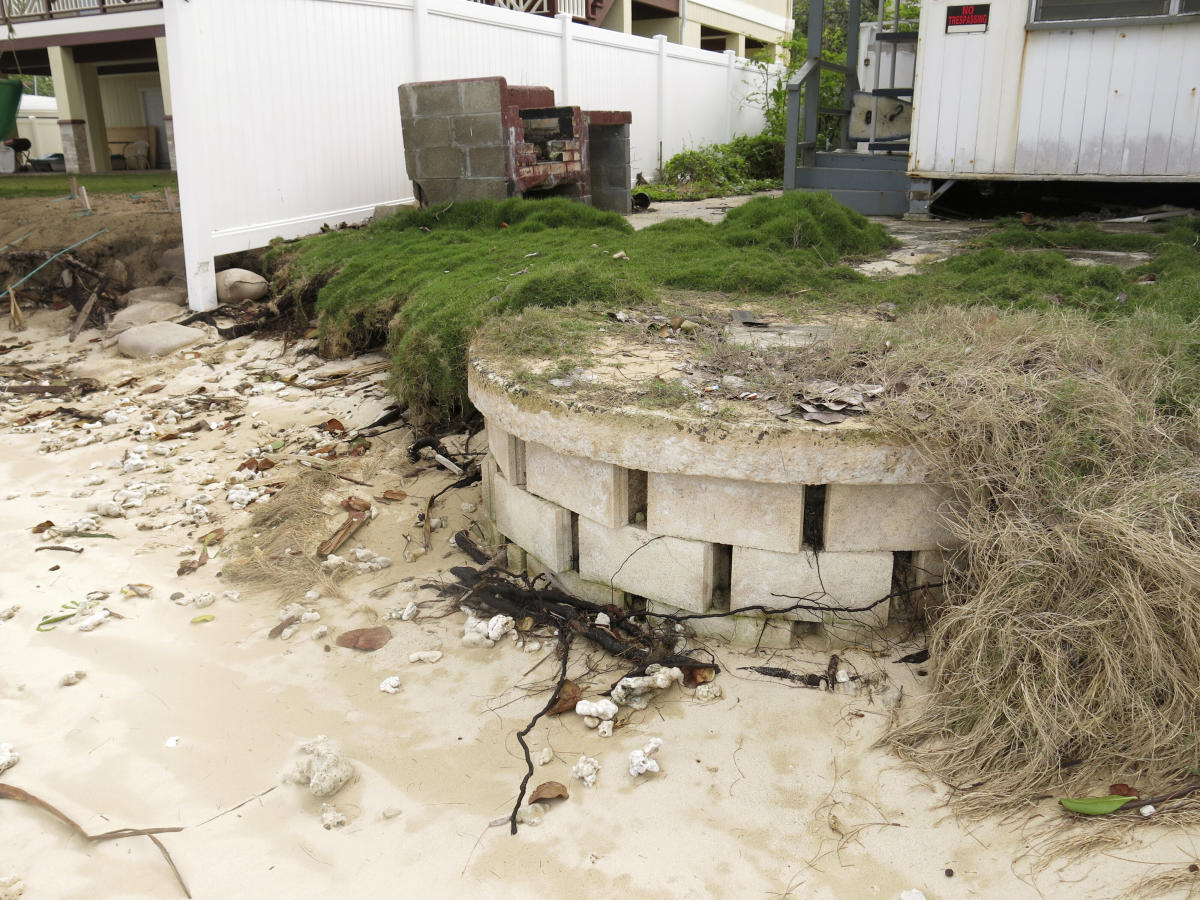HONOLULU (AP) — A former Hawaii legislator is expected in court Thursday for sentencing in a federal corruption case that has drawn attention to a perennial problem in the islands: the tens of thousands of cesspools that discharge 50 million gallons of raw sewage into the pristine state. water every day.
Cesspits — pits dug into the ground that collect sewage from homes and buildings not connected to city services for gradual release into the environment — are at the heart of the criminal case against former Democratic state representative Ty Cullen. He has admitted to taking cash bribes and gambling chips in exchange for influencing legislation to reduce the widespread use of cesspits in Hawaii.
The toxic pits proliferated in Hawaii in the 1950s, 1960s, and 1970s. when investments in sewer lines could not keep up with the rapid development. Today, Hawaii has 83,000 — more than any other state — and only banned new cesspools in 2016.
Now Hawaii is in a hurry to get rid of them because of the environmental damage they cause and the risk of groundwater contamination.
Government spending on such efforts and the lack of knowledge about the specialized field can create conditions ripe for corruption, said Colin Moore, a political science professor at the University of Hawaii.
“That just creates a lot of opportunity because comparisons are so hard to make, especially in a really small market like Hawaii, where there might be only two, or in some cases even one contractor who can do the job,” Moore said. “Who says the offer is too high?”
Cullen faces up to 20 years in prison and a fine of up to $250,000 if convicted in U.S. district court on Thursday.
Prosecutors have recommended that he serve between two and two-and-a-half years in prison. His lawyer has called for a 15-month prison sentence given what he called Cullen’s “substantial assistance” to investigators.
Related criminal cases have led to pleas of guilty from the Honolulu businessman who bribed Cullen and a former Senate Majority Leader.
An estimated 16% of homes in Hawaii have cesspools, but the proportion is much higher on more rural islands like the Big Island, where more than half of homes have them. They can be found everywhere from the mountains to the coast and even in urban neighborhoods just a few miles from downtown Honolulu.
In these homes, the waste water from toilets and showers flows through the sewer to a well in a yard instead of to a sewer pipe and to a central waste water treatment plant. Raw sewage – including all its bacteria and pathogens – then seeps out of the well into the soil, groundwater, aquifers and ocean.
The sewage can contaminate drinking water and in the ocean it can fuel the growth of reef-suffocating algae. As sea levels rise due to climate change, scientists expect the ocean to flood more and more coastal cesspools, pushing sewage into waters where people swim.
Such concerns have prompted legislators to draft bills to phase out cesspits. In 2017, the state passed a law requiring homeowners to close their cesspools and connect them to sewers or install cleaner on-site waste disposal systems by 2050. breaking down solids in a tank and drain field removes wastewater and pathogens while safely returning the water to the environment.
This year, lawmakers are considering additional legislation, including a bill that would accelerate conversion deadlines for cesspits in more environmentally sensitive areas to 2035 and 2040. Another would launch a pilot program to expand sewage systems in the province.
In a plea deal, Cullen admitted to receiving envelopes of cash to help pass a bill related to cesspit conversions. He was vice chairman of the powerful House Finance Committee during some of the time he received bribes.
Cullen accepted a total of $23,000 from Honolulu businessman Milton Choy, who will be sentenced next month. He also admitted to taking $22,000 worth of gambling chips from Choy while traveling to a wastewater conference in New Orleans.
Court documents show that Choy’s company regularly contracted with government agencies to provide wastewater management services and was well placed to benefit from government-funded cesspit conversion projects.
J. Kalani English, a Democrat and former Senate Majority Leader, has already been sentenced to three years and four months in prison for taking a bribe from Choy, also in exchange for influencing cesspool legislation.
Separately, a former Maui County wastewater manager admitted to taking $2 million from Choy in exchange for sending his company at least 56 exclusive source contracts. He was sentenced to 10 years in February.
Cullen wrote in a letter to Judge Susan Oki Mollway ahead of his sentencing that he made “glaring mistakes” and feels “regret, shame, embarrassment and dishonor”.
“I ask for forgiveness and the opportunity to give me time to learn from my mistakes. I will work hard to share with others and turn my mistakes into a teachable moment,” he said.
Meanwhile, observers noted the many sharp jokes that can be made about the case.
“We were joking that, ‘Oh, now these politicians have given cesspools a bad name,'” said Stuart Coleman, a longtime advocate for closing Hawaii’s cesspools and the executive director of the nonprofit Wastewater Alternatives and Innovations. .
“It’s not such a big leap when you talk about this kind of corruption and (then) you talk about the cesspool that is politics.”

